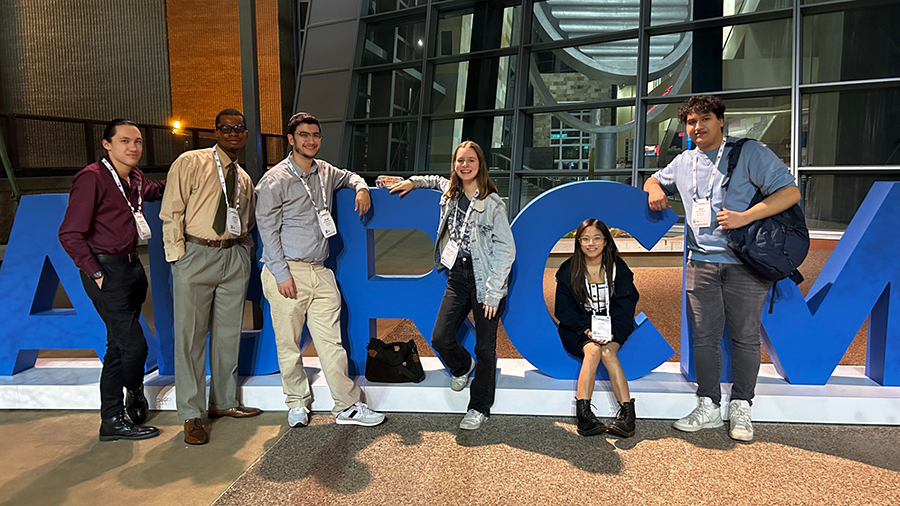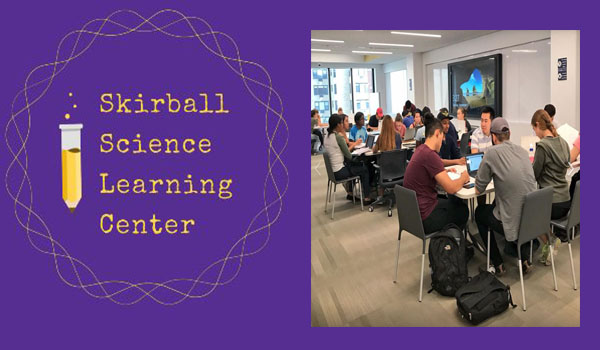
The Hunter College department of Biological Sciences is one of the founding members of the The Center for Translational and Basic Research (CTBR) . The CTBR is a consortium of researchers within Hunter College of The City University of New York — one of the largest public universities in the nation. It boasts unparalleled quality and diversity in its researchers on both the faculty and graduate student levels. At the heart of the CTBR’s mission is an imperative to build unique collaborations among biologists, chemists, biopsychologists, biophysicists, and bioanthropologists; to recruit and equip outstanding faculty; to develop and share core research facilities; and to implement strategies for scientific networking. The CTBR anticipates a future of increasingly cross-disciplinary research and stays on the cusp of that trend by fostering dialogue and cooperation among diverse avenues of research, by supporting graduate students, and by sponsoring conferences. Research at the Center covers a wide variety of disciplines and topics, including structural determination of proteins and nucleic acids by X-ray diffraction and molecular modeling; characterization of protein-protein interactions involved in signal transduction; investigation of regulatory mechanisms underlying neuron functioning and regeneration; nanotechnology; bioinformatics; AIDS; human behavior; and the implementation of discovery to treatment of disease. The CTBR provides a vibrant research environment marked by workshops on cutting-edge research techniques; frequent research colloquia by guest scientists; and an annual international symposium, which is a major event on the New York scientific calendar. Faculty of the CTBR are highly respected leaders engaging in research that is recognized and rewarded at the highest levels: in 2005, Dr. Derrick Brazill, an Assistant Professor of Biological Sciences, received the prestigious Presidential Early Career Award for Scientists and Engineers (PECASE) after winning a 2004 Faculty Early Career Development (CAREER) Program award from the National Science Foundation (NSF) for his work on cell density sensing in Dictyostelium. In 2001, Dr. Marie T. Filbin, a Distinguished Professor of Biological Sciences, was named Co-Recipient of the prestigious Ameritec Prize for Paralysis Research.
Students, as well, go on to become dynamic and sought-after investigators making noteworthy strides in their respective fields. Dr.Erich Jarvis, Associate Professor in the Department of Neurobiology at Duke University in Durham, North Carolina, studied at the CTBR as an undergraduate and is now a world-renowned authority on bird song neurobiology. This year he received a National Institutes of Health (NIH) Director’s Pioneer Award for his research — a grant that provides $500,000 in unrestricted funding each year for five years.
Since the Center’s inception in 1985, the growing number of papers published in peer-reviewed journals and the number and amount of grants obtained by the faculty have been the most visible hallmarks of the Center’s success. The quality of newly hired faculty and the number of Ph.D. students graduated and placed in excellent positions in industry and academia are further testaments to the effectiveness of the Center’s interdisciplinary model. Furthermore, the CTBR’s rich infrastructure enables Hunter scientists to successfully attain highly competitive research grants.
The CTBR encourages bright undergraduates to make a career of scientific research by hosting a Summer Program for Undergraduate Research (SPUR). Established in 1994, SPUR was formed to prepare and mentor qualified American undergraduate students who would like to pursue graduate biomedical research. SPUR was especially developed to recruit and nurture minority talent. Hunter College is a leader in academic diversity, with an undergraduate student population that reflects the demographics of New York City. Dr. Robert Dottin, Director of the CTBR, has successfully diversified the faculty and graduate student bodies, providing role models for excellence in Science. The CTBR is proud to be a sponsor of the Diversity Supplement of The Scientist.
The CTBR is supported by the Research Centers in Minority Institutions Program of the Division of Research Infrastructure of the National Center for Research Resources of the National Institutes of Health. Grant Number G12 RR-03037.
Since the Center’s inception in 1985, the growing number of papers published in peer-reviewed journals and the number and amount of grants obtained by the faculty have been the most visible hallmarks of the Center’s success. The quality of newly hired faculty and the number of Ph.D. students graduated and placed in excellent positions in industry and academia are further testaments to the effectiveness of the Center’s interdisciplinary model. Furthermore, the CTBR’s rich infrastructure enables Hunter scientists to successfully attain highly competitive research grants.
The CTBR encourages bright undergraduates to make a career of scientific research by hosting a Summer Program for Undergraduate Research (SPUR). Established in 1994, SPUR was formed to prepare and mentor qualified American undergraduate students who would like to pursue graduate biomedical research. SPUR was especially developed to recruit and nurture minority talent. Hunter College is a leader in academic diversity, with an undergraduate student population that reflects the demographics of New York City. Dr. Robert Dottin, Director of the CTBR, has successfully diversified the faculty and graduate student bodies, providing role models for excellence in Science. The CTBR is proud to be a sponsor of the Diversity Supplement of The Scientist.
The CTBR is supported by the Research Centers in Minority Institutions Program of the Division of Research Infrastructure of the National Center for Research Resources of the National Institutes of Health. Grant Number G12 RR-03037.













